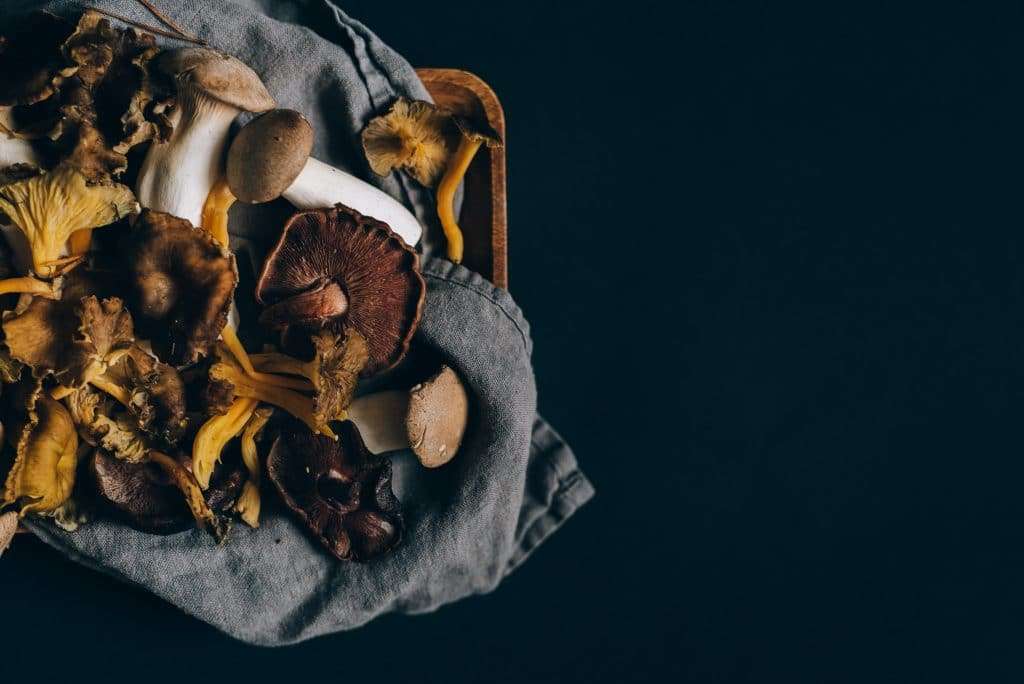Psychedelic treatment options now run the gamut — and when it comes to mental health and wellness, a growing number of people are ready to give them a try, especially for depression and anxiety.
Last October, New Jersey Senator Cory Booker took to Instagram to promise to do more to move the needle on making psychedelic substances accessible for mental health treatment.
“Let’s talk about drugs,” the Democrat said. “Psilocybin, which is a hallucinogen, is a Schedule 1 drug, which means the FDA puts a lot of limitations on it. But at the same time, we’re having massive breakthroughs in a lot of the research.”
Booker went on to point to psilocybin and MDMA as showing promise in treating PTSD, trauma, anxiety, and depression, among other issues.
“For too long, the war on drugs, the legacy that is still with us, drugs that could help people — drugs that could save lives are being restricted, restricted in their study, restricted in their clinical trials, and delayed,” Booker said.
He put forward bipartisan legislation “to deal with this,” he said, “to try to open up more avenues to take drugs that are now banned, and make them accessible, especially for people that are suffering.”
Booker isn’t alone; Republicans Matt Gaetz of Florida and Dan Crenshaw of Texas have supported legislative efforts, too. Democrats Alexandria Ocasio-Cortez of New York and Rho Khanna and Lou Correa of California have supported psychedelics; last month, California passed bill SB 58 to decriminalize possession and use of five naturally occurring psychedelics — psilocybin, psilocin, DMT, ibogaine, mescaline.
It’s not just stateside showing interest in making psychedelics more accessible. Earlier this year, Australia became the first country to approve psychedelics for therapeutic use.
In a recent survey conducted by The Harris Poll, more than 60 percent of people suffering from anxiety, depression, or PTSD, say they believe psychedelic medicine could play a role in their treatment and that the substances should be made widely available. It’s the latest in a body of research showing the market potential for psychedelics, despite most of them still being federally outlawed.
“We are witnessing a silent crisis impacting people across the globe exacerbated by an ongoing pandemic, and the results of this survey should compel more medical professionals and lawmakers to support in-depth studies on the therapeutic benefits of psychedelic medicine,” Matt Stang, co-founder and CEO of Delic, who commissioned the survey, said in a statement last year. Delic operates the largest chain of ketamine clinics in the U.S. Ketamine is legal for therapeutic use but other substances, including psilocybin, LSD, iboga, and MDMA, are not.
“This promising family of new medicines has the potential to be more effective than traditional medicines with minimal side effects, giving people their best selves back,” said Stang. “Our country’s mental health crisis not only impacts public health, but also the economy–each year, untreated mental illness costs the U.S. up to $300 billion in lost productivity.”
Depression in America
More than 40 million Americans suffer from depression or other mental health issues — an epidemic that’s been amplified by the covid pandemic, climate change, and power imbalances across the globe.
According to the survey’s findings, 63 percent of participants say they have used prescription medications for their anxiety, depression, and PTSD. Most said the drugs helped, but many said they still experienced residual negative feelings, and 18 percent said the medications did not help, or, in some cases, even made the conditions worse.
Treatment-resistant depression is extremely common, affecting between 29 to 46 percent of patients, according to research. Treatment-resistant depression is defined as two or more medical treatments that fail to yield results.
But where conventional treatments fail — mainly the class of drugs known as SSRIs (selective serotonin reuptake inhibitors) like Lexapro, Prozac, and Celexa — psychedelics have proven to be effective in as little as a single dose.

That’s particularly true for the potent psilocybin, which is found in more than 200 species of mushrooms. Last July, one study on psilocybin found it restored neural pathways lost as a result of depression by as much as ten percent after a single dose. The researchers observed increased and improved neural connections just 24 hours after the psychedelic had been administered.
A 2015 study found a single dose of MDMA — best known as the club drug ecstasy or molly—showed significant promise in reducing conditioned fear responses, which are often long-term side effects of PTSD.
In 2019, researchers found ketamine, a dissociative drug, abated depression for at least a month after a single dose.
With high success rates for psychedelics, 83 percent of the recent survey participants said they would be open to alternative treatments including MDMA (56 percent), psilocybin (62 percent), and ketamine (66 percent).
Psychedelic treatments
Unlike alcohol, tobacco, and heavier substances including methamphetamines, cocaine, and heroin, psychedelics are not habit-forming.
Ketamine has FDA approval for a wide range of uses. Delic, which acquired the Ketamine Wellness Centers in 2021, operates 12 psychedelic wellness clinics across the U.S., with plans to more than double that over the next 18 months.
MDMA is still classified as a Schedule 1 drug, despite a growing body of research that demonstrates its efficacy, particularly in treating PTSD. It’s been widely studied by MAPS (Multidisciplinary Association for Psychedelic Studies), which received the first FDA approval for Phase 3 trials in 2016.

Psilocybin is also classified as a Schedule 1 drug. But in 2020, voters in Oregon passed legislation allowing clinical use across the state. A number of cities have decriminalized psychedelics, which also include LSD and ayahuasca. Denver, Washington D.C., Santa Cruz, and several cities just outside of Boston, including Cambridge, all have decriminalized psychedelics. California now has a measure on the 2022 ballot that would also decriminalize psychedelics.
California is often an early adopter of controversial and progressive legislation, paving the way for similar bills across the country. In 1996, it became the first state to legalize medical marijuana. More than two decades later, 30 states have passed similar laws. It was the first state to mandate ethnic studies in high school. In 2021, it passed a bill requiring large retailers to provide gender-neutral toy sections. In 2019, it became the first state to ban the sale of fur.
Last summer, Booker, along with Senator Rand Paul (R-KY), introduced the Right to Try Act, which would allow terminally ill patients access to Schedule 1 drugs for which Phase 1 clinical trials have been completed. The Act would remove obstacles presented by the Controlled Substances Act. Representatives Earl Blumenauer (D-OR) and Nancy Mace (R-SC) introduced companion legislation to the House.
“Recent studies suggest that MDMA and psilocybin could represent an enormous advancement in mental health and psychopharmacology,” Senator Booker said in a statement last July. “Unfortunately, many eligible patients who urgently need care do not currently have access to these promising therapies. This legislation will put the patient first and help ensure access to life-changing and life-saving drugs.”
“As a physician, I know how important Right to Try is for patients facing a life-threatening condition.” said Dr. Paul. “Unfortunately, the federal bureaucracy continues to block patients seeking to use Schedule I drugs under Right to Try. I’m proud to lead this bipartisan legislation with Sen. Booker that will get government out of the way and give doctors more resources to help patients.”
“Oregon has a long legacy of ensuring that end-of-life patients have access to the full spectrum of treatment options to alleviate their condition and improve their quality of life. Patients and doctors deserve to discuss treatments—including psilocybin—that researchers find provide immediate and sustained relief from pain, anxiety, and depression for people battling terminal illness,” Blumenauer said. “Federal restrictions have obstructed access to end-of-life care for too long, this legislation will change that and ensure that all patients have the Right to Try.”
Destigmatizing psychedelics
New York Times journalist and University of California at Berkeley professor Michael Pollan helped put psychedelic wellness on the map with his 2018 book, How to Change Your Mind: What the New Science of Psychedelics Teaches Us About Consciousness, Dying, Addiction, Depression, and Transcendence.

Pollan, best known for his writings on food, is a three-times James Beard award-winning journalist. His dive into psychedelics, which included his own experiences with a range of substances and is the subject of a Netflix series of the same name, helped to remove the stigmas around psychedelics. Pollan posited that not only do these substances hold the potential to bring healing, but they can provide a deeply spiritual experience, which may be key to how a single dose can be so lasting,
“For me, ‘spiritual’ is a good name for some of the powerful mental phenomena that arise when the voice of the ego is muted or silenced. If nothing else, these [psychedelic] journeys have shown me how that psychic construct—at once so familiar and on reflection so strange—stands between us and some striking new dimensions of experience, whether of the world outside us or of the mind within.”
Ayahuasca, the DMT-rich brew used widely across South America, is seeing an uptick in research, too. Psychedelic magazine DoubleBlind reported that one study will see immigrants and refugees trial ayahuasca to process trauma. That research is being helmed by Unlimited Sciences out of Colorado Springs, Colorado.
“We thought this would be a fantastic opportunity to be able to educate and bring awareness to both the positive and negative experiences of these group-based ceremonies,” Matthew X. Lowe, director of research at Unlimited Sciences told DoubleBlind.

According to Lowe, ayahuasca retreats are growing year after year. “Whether we do the research or not, this is happening. People are having these experiences,” he said.
But Lowe says there’s a reason Unlimited Sciences isn’t going to the Amazon rainforest where the bulk of ayahuasca ceremonies happen. Like research into psilocybin and other substances, he says it’s critical ayahuasca be studied “in different contexts and settings” in order to see how it affects different communities.
“In an ideal world, everyone would go down to the Amazon basin and they would have these traditional practices, but, of course, not everyone has the access to do that, and they’re going to be doing these substances regardless of that.,” Lowe said.
Like the cannabis boom in the last decade as states legalized recreational use, the psychedelic industry is laying in wait, expected to reach $10.75 billion by 2027. The industry has earned support from high-profile investors including Peter Thiel and Kevin O’Leary. And with big legislative victories likely coming in states including Washington, Colorado, and Hawaii—as well as California—later this year, the market appears ready to explode. For those who need it most, it’s not a moment too soon.
“This promising family of new medicines has the potential to be more effective than traditional medicines with minimal side effects,” Stang says.
“We truly believe the world will look back on this moment right before full global acceptance and remark how much more effective treatment has become, in a very short time.”
Related on Ethos:


